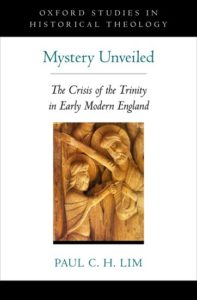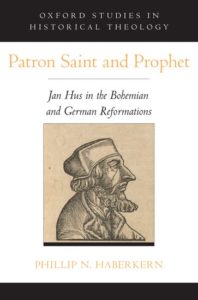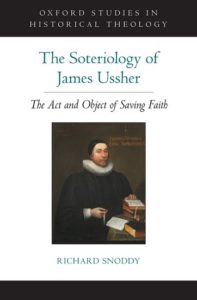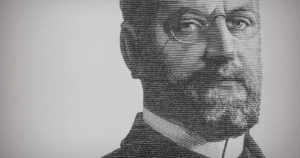
Author’s Corner: Oxford Studies in Historical Theology
Each week on Credo we welcome you to join us in the Author’s Corner where we will meet a set of authors whose recent books deserve your attention and might even help you grow in your knowledge of theology, history, philosophy, and the scriptures. We hope the Author’s Corner can keep you up-to-date on the most important books published today and where you can find them.
On today’s Author’s Corner, we present you with a selection from the Oxford Studies in Historical Theology, edited by Richard A. Muller (Oxford University Press).
Oxford University Press established in 1994 a new series of original monographs devoted to the history of Christian thought from its early and medieval beginnings to its later development in the modern period. The underlying assumption held from the first was that Christian ideas from the past can best be understood when scholars present them in their proper historical and cultural context. For 20 years the distinguished authors in this series have treated a wide variety of intellectual problems from the Christian past and, by so doing, have redefined the discipline of historical theology for the foreseeable future.
M ystery Unveiled: The Crisis of the Trinity in Early Modern England (OUP, 2012) by Paul C. H. Lim
ystery Unveiled: The Crisis of the Trinity in Early Modern England (OUP, 2012) by Paul C. H. Lim
Winner of the Sixteenth Century Society’s Roland H. Bainton Prize for History or Theology
Paul C. H. Lim offers an insightful examination of the polemical debates about the doctrine of the Trinity in seventeenth-century England, showing that the philosophical and theological re-configuration of this doctrine had a significant impact on the politics of religion in the early modern period.
Lim’s analysis of these heated polemics shows how Trinitarian God-talk became untenable in many ecclesiastical and philosophical circles, leading to the emergence of Unitarianism. He demonstrates that those who continued to uphold Trinitarian doctrine articulated their piety and theological perspectives in an increasingly secularized culture of discourse. Drawing on both unexplored manuscripts and well-known treatises of Continental and English provenance, he uncovers the complex layers of the polemic: from biblical exegesis to reception history of patristic authorities, from popular religious radicalism during the Civil War to Puritan spirituality, from Continental Socinians to English anti-Trinitarians who claimed an independent theological identity, from the notion of the Platonic captivity of primitive Christianity to that of Plato as “Moses Atticus.”
Among this book’s surprising findings are that Anti-Trinitarian sentiment arose in a Puritan ambience in which biblical literalism overrode rationalistic presuppositions, and that theology and philosophy were more closely connected during this period than previously thought. Mystery Unveiled fills a significant lacuna in early modern English intellectual history.
P atron Saint and Prophet: Jan Hus in the Bohemian and German Reformations (OUP, 2016) by Phillip N. Haberkern
atron Saint and Prophet: Jan Hus in the Bohemian and German Reformations (OUP, 2016) by Phillip N. Haberkern
The Bohemian preacher and religious reformer Jan Hus has been celebrated as a de facto saint since being burned at the stake as a heretic in 1415. Patron Saint and Prophet analyzes Hus’s commemoration from the time of his death until the middle of the following century, tracing the ways in which both his supporters and his most outspoken opponents sought to determine whether he would be remembered as a heretic or saint. Phillip Haberkern examines how specific historical conflicts and exigencies affected the evolution of Hus’s memory-within the militant Hussite movement that flourished until the mid-1430s, within the Czech Utraquist church that succeeded it, and among sixteenth-century Lutherans who viewed Hus as a forerunner and even prophet of their reform.
Using close readings of written sources such as sermons and church histories, visual media including manuscript illuminations and monumental art, and oral forms of discourse such as vernacular songs and liturgical prayers, this book offers a fascinating account of how changes in media technology complemented the shifting theology of the cult of saints in order to shape early modern commemorative practices. By focusing on the ways in which the invocation of Hus catalyzed religious dissent within two distinct historical contexts, Haberkern compares the role of memory in late medieval Bohemia with the emergence of history as a constitutive religious discourse in the early modern German land. In this way, he also provides a detailed analysis of the ways in which Bohemian and German religious reformers justified their dissent from the Roman Church by invoking the past.
T he Soteriology of James Ussher: The Act and Object of Saving Faith (OUP, 2014) by Richard Snoddy
he Soteriology of James Ussher: The Act and Object of Saving Faith (OUP, 2014) by Richard Snoddy
Drawing on material from a range of genres, with extensive reference to manuscript collections, Richard Snoddy offers a detailed study of James Ussher’s applied soteriology. After locating Ussher in the ecclesiastical context of seventeenth-century Ireland and England, Snoddy examines his teaching on the doctrines of atonement, justification, sanctification, and assurance. He considers their interconnection in Ussher’s thought, particularly the manner in which a general atonement functions as the ground of justification and the extent to which it functions as the ground of assurance. The book documents Ussher’s change of mind on a number of important issues, especially how, from holding to a limited atonement and an assurance that is of the essence of faith, he moved to a belief in a general atonement and an assurance obtained through experimental piety. Within the framework of one widely accepted scholarly paradigm, he appears to move from one logically inconsistent position to another, but his thought contains an inner logic that questions the explanatory power of that paradigm. This insightful study sheds new light on the diversity of seventeenth-century Reformed theology in the British Isles.

